Excited about your upcoming competency-based interview? You’re not alone!
These interviews are all about showcasing your skills and experiences in a structured way.
Competency-based interviews give you a chance to prove you have the skills needed for the job.
To start, get familiar with the job description. This will help you figure out what competencies they’re looking for.
Prepare some examples from your past experiences that highlight these skills.
Practice telling your stories clearly and confidently.
Remember, these interviews focus on how your skills match the job.
It’s all about demonstrating your strengths through real-life examples.
Your ability to connect your experiences with the required competencies can make all the difference.
Now let’s dive in and get you ready to ace that interview!
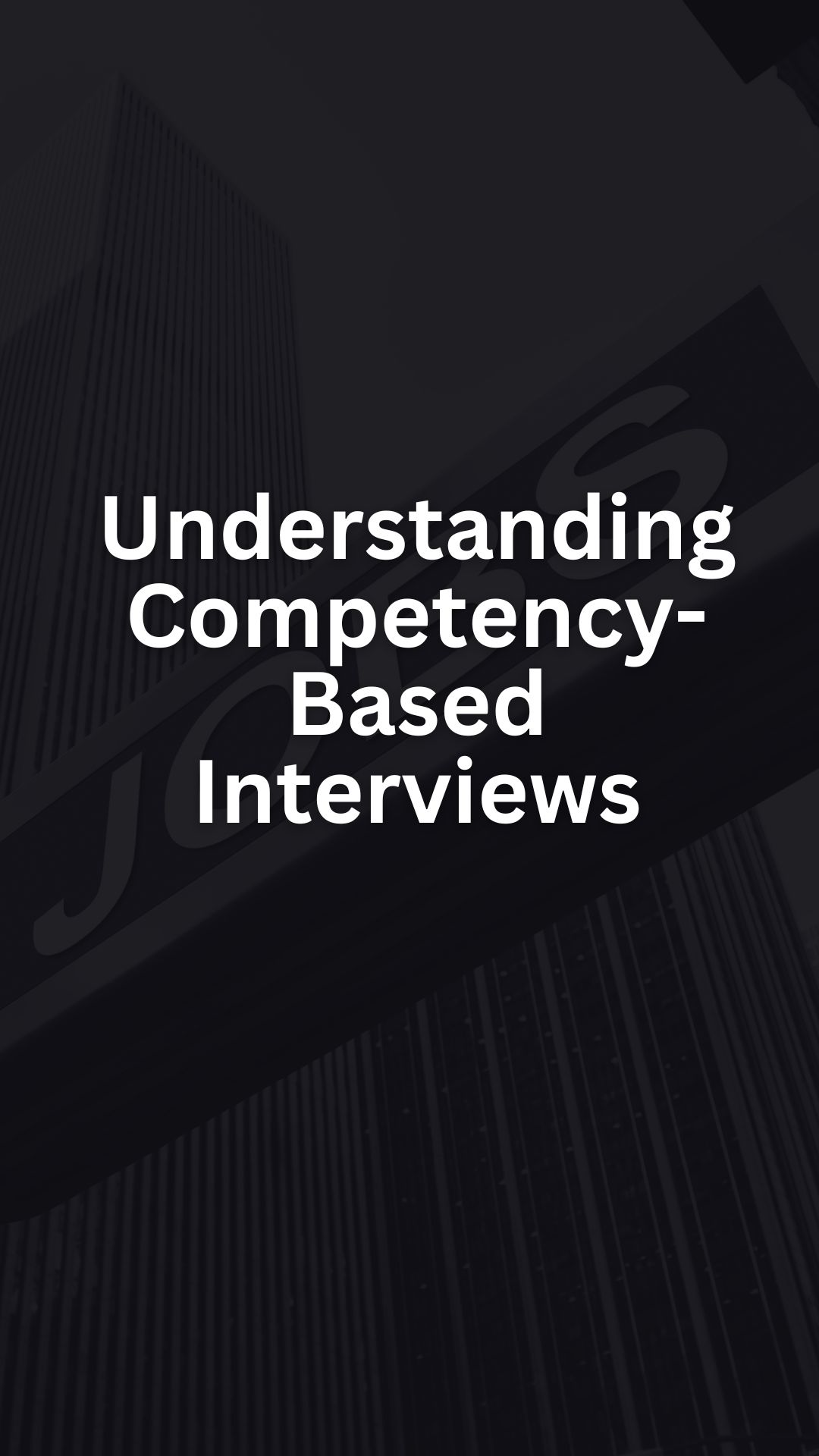
Understanding Competency-Based Interviews
Competency-based interviews focus on your skills and abilities. They help employers see if you can do the job well.
What to Expect:
- The interviewer will ask questions about past experiences.
- You need to show how you used your skills in real situations.
Common Competencies:
- Teamwork: How well do you work with others?
- Problem-Solving: Can you find solutions quickly?
- Communication: Are you good at sharing ideas?
Sample Competency Questions:
- Describe a time you worked in a team. What was your role?
- Tell us about a problem you solved. How did you do it?
- Share an example of how you communicated a difficult idea.
Tips to Prepare:
- Think of examples from school, work, or hobbies.
- Use the STAR method: Situation, Task, Action, Result.
- Practice your answers to stay confident.
STAR Method:
| Element | Description |
|---|---|
| Situation | What was happening? |
| Task | What did you need to achieve? |
| Action | What steps did you take? |
| Result | What was the outcome? |
Use clear and short answers. Show the value you bring to the job.

Identifying Key Competencies
Recognizing key competencies is crucial for acing a competency-based interview. Companies want to find candidates with specific skills that match the job role. You need to know what these skills are and how to showcase them.
First, start by reading the job description carefully. Look for key phrases like “teamwork,” “problem-solving,” and “leadership.”
Next, think about your past experiences. Match these experiences with the competencies listed in the job description. Use examples where you demonstrated these skills.
Creating a competency chart can help. Here’s a simple example:
| Competency | Example from Experience |
|---|---|
| Teamwork | Worked on a group project in school |
| Problem-solving | Solved a major issue at a part-time job |
| Leadership | Led a volunteer event |
This table can guide you during your preparation.
Research the company to understand their values and culture. Companies often look for competencies that align with their mission. Knowing this gives you an edge.
Practice speaking about your competencies. Have a friend or family member ask you questions. This will help you feel more confident during the actual interview.
List your top competencies and prepare stories that highlight them. Keep your examples clear and relevant. This helps interviewers see that you are the right fit for the job.
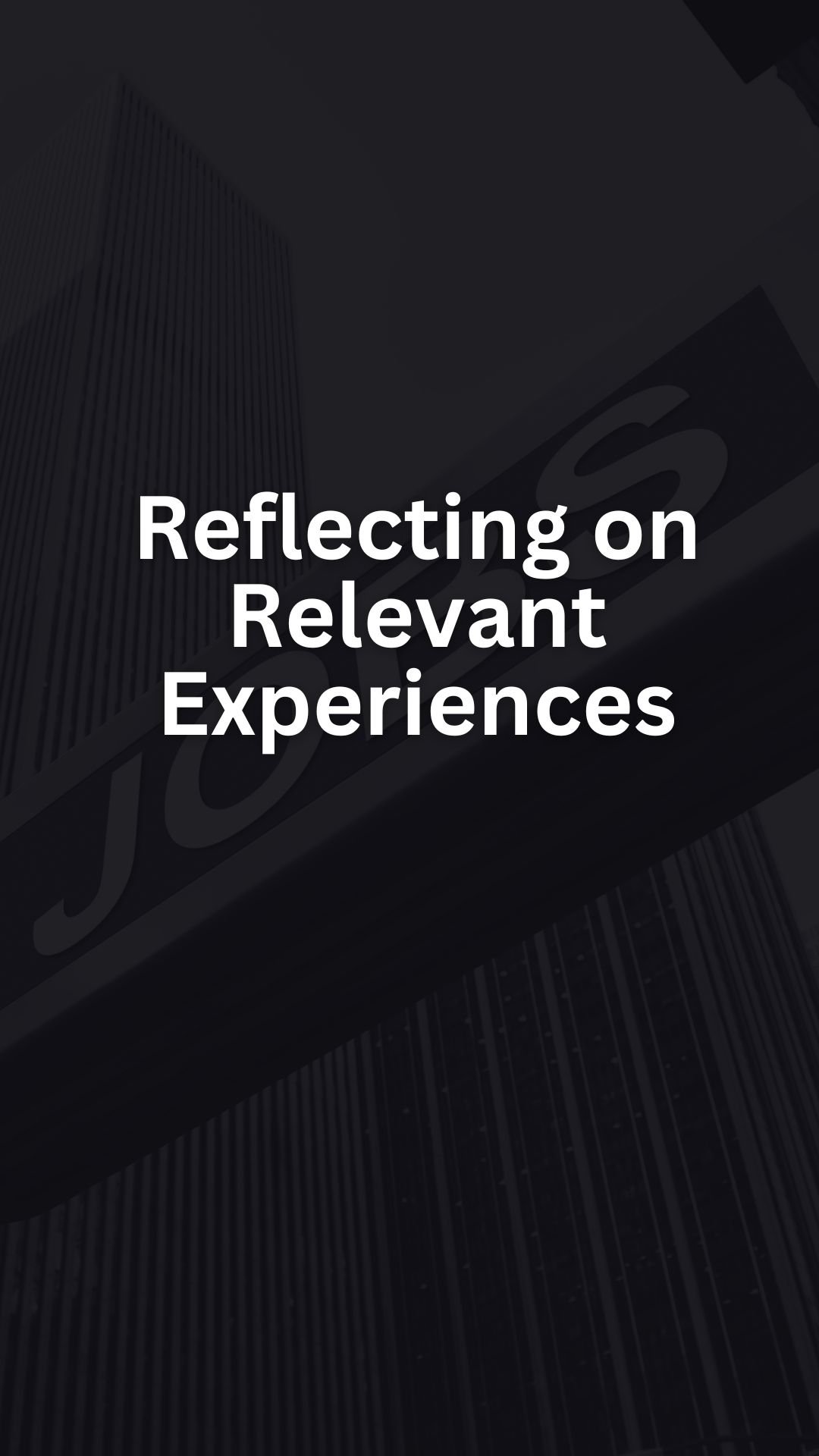
Reflecting on Relevant Experiences
Thinking about your past can give you the confidence and stories you need for a competency-based interview. Focus on what you have learned from personal and professional events.
Personal Reflection
Start by looking back at experiences in your life that have shaped who you are. Think about:
- Times you solved a problem
- Moments of teamwork
- Times when you led a group
Write these stories down. Think about why they matter and what they say about you. Ask yourself questions:
- What skills did I use?
- How did I feel?
- What was the outcome?
These reflections will help you share real stories during your interview.
Professional Development
Next, focus on your work life. Check out past jobs, volunteer work, or internships.
Identify key events:
- Projects you completed
- Challenges you faced
- Skills you learned
Think about your role in these events. Consider:
- What did you do?
- What was the result?
- How did you improve?
Writing these details down will help you show your growth and strengths in the interview.

Crafting Your Success Stories
When preparing for a competency-based interview, focus on your success stories. These stories highlight your skills and achievements clearly to the interviewer.
Start by identifying key experiences. Think about moments when you solved a problem, led a team, or exceeded expectations. Choose examples that relate to the job you want.
Next, use the STAR method to structure your stories:
- Situation: Describe the context and background.
- Task: Explain the challenge or responsibility.
- Action: Detail what steps you took.
- Result: Share the outcome and your impact.
Example:
| STAR Component | Details |
|---|---|
| Situation | Lead a project team during a busy season. |
| Task | Needed to deliver a key project on time. |
| Action | Organized weekly meetings, delegated tasks, and provided support. |
| Result | Completed the project two weeks early with excellent feedback. |
Keep your stories short and focused. Each one should be no more than a few sentences long.
Practice telling your stories out loud. This helps you remember details and stay confident during the interview.
Remember, you are the hero of your stories. Highlight your specific actions and achievements.
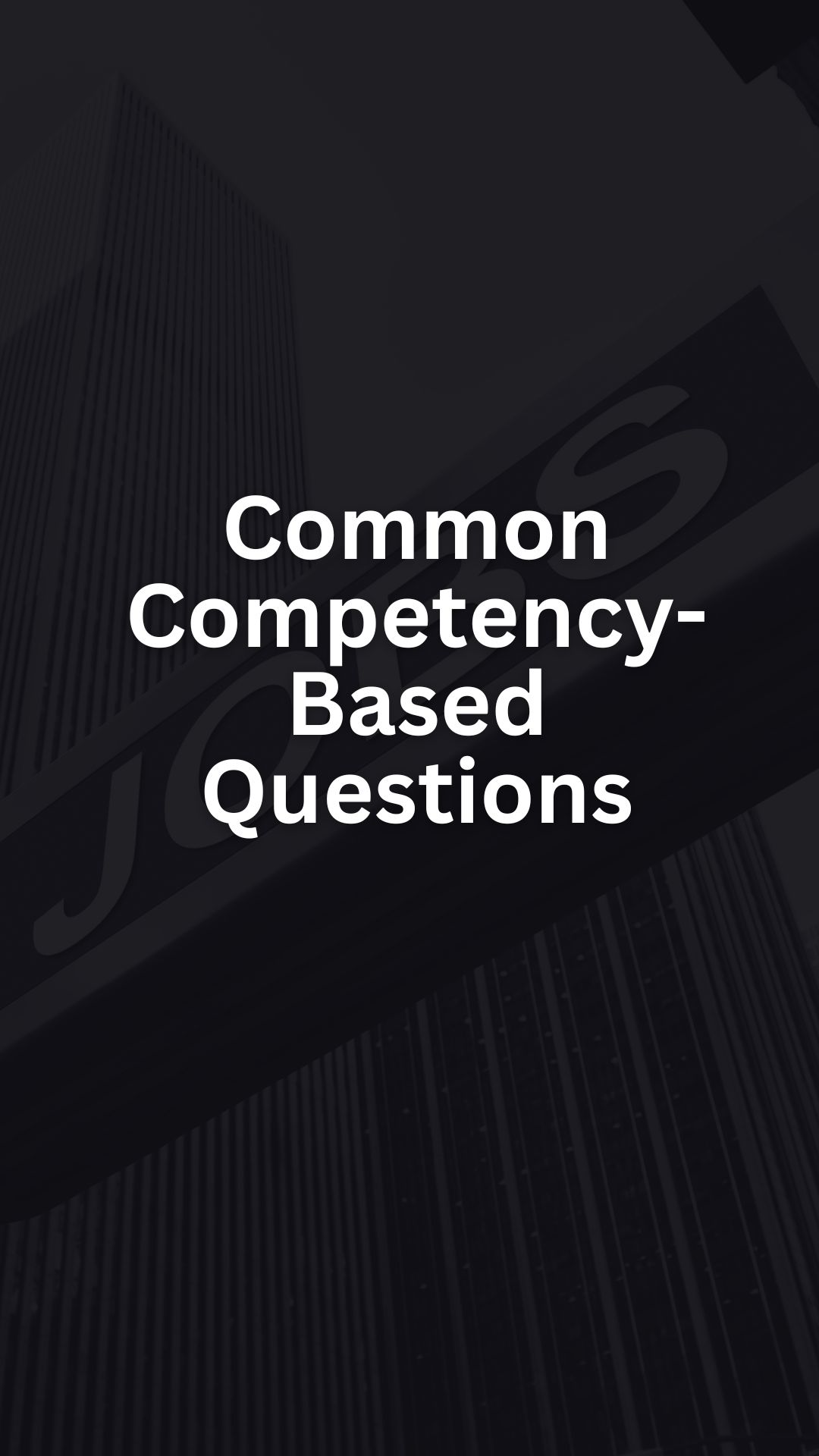
Common Competency-Based Questions
In a competency-based interview, you’ll be asked to share specific examples from your past experience. These questions are designed to let the interviewer see how you handle real-world situations.
Teamwork and Collaboration
Interviewers want to know if you can work well with others. You’ll need to give examples of when you were part of a team and how you contributed.
A common question is, “Can you describe a time when you worked as part of a team to achieve a goal?”
Outline the situation: Briefly explain the team’s goal. Actions you took: Share what you did to help the team succeed. Results: Highlight the outcome and any lessons learned.
Be as specific as possible. Mention roles, responsibilities, and the impact you had on the team.
Problem-Solving
To answer these questions, you’re expected to show your critical thinking skills.
You may be asked, “Describe a challenging problem you faced at work. How did you handle it?”
Identify the problem: Clearly define the issue. Steps taken: Explain the steps you took to solve it. Outcome: Mention the result and any feedback received.
Focus on your approach to finding a solution, not just the solution itself. Share how you analyzed the problem and what strategies you used.
Leadership
Questions about leadership focus on your ability to motivate and guide others. You might hear, “Tell me about a time when you led a project or team. What was your approach?”
Leadership style: Describe your method of leadership. Actions: Explain specific actions you took as a leader. Results: Share the results and how your leadership made a difference.
Discuss how you delegated tasks, communicated with your team, and handled any challenges. Avoid focusing only on successes; talking about obstacles you overcame is crucial.
Adaptability
These questions assess how you handle change.
An interviewer might ask, “Give an example of a time when you had to adjust to a significant change at work.”
Describe the change: Explain what changed in your workplace. Your reaction: Discuss your initial reaction and how you adapted. Outcome: Share how you managed the change and its effects.
Highlight your flexibility and ability to stay productive despite changes. Mention any skills or strategies you used to adapt efficiently.
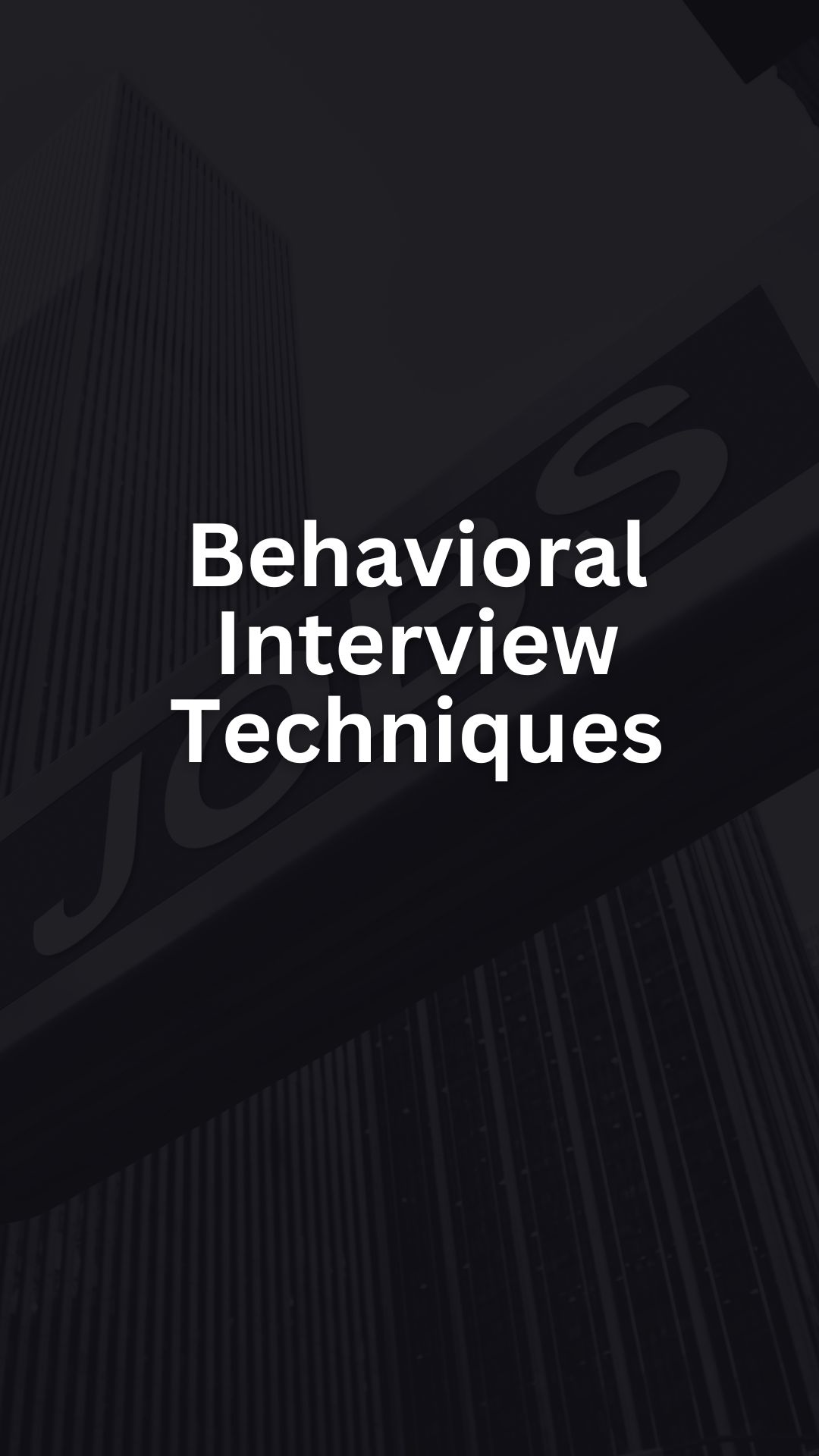
Behavioral Interview Techniques
Behavioral interviews focus on your past actions and behaviors in certain situations. They help employers see how you might act in the future.
STAR Method: This is a technique to answer behavioral questions. STAR stands for:
- Situation: Describe the context.
- Task: Explain the task or challenge.
- Action: Detail the actions you took.
- Result: Share the outcomes.
Here’s an example:
| Situation | Task | Action | Result |
|---|---|---|---|
| Led a team project | Improve team efficiency | Implemented new planning tools | Boosted productivity by 20% |
Practice: Think of examples from your past experiences that show different skills. Write them out using the STAR method.
Common Questions:
- Describe a time you solved a problem.
- Share an example of teamwork.
- Explain a time you had to adapt to a change.
Tips:
- Be honest. Use real experiences.
- Be specific. Avoid vague answers.
- Keep your answers concise. Focus on the key points.
Preparation: Reflect on your experiences. Think about what you learned from them. Practice telling these stories clearly.
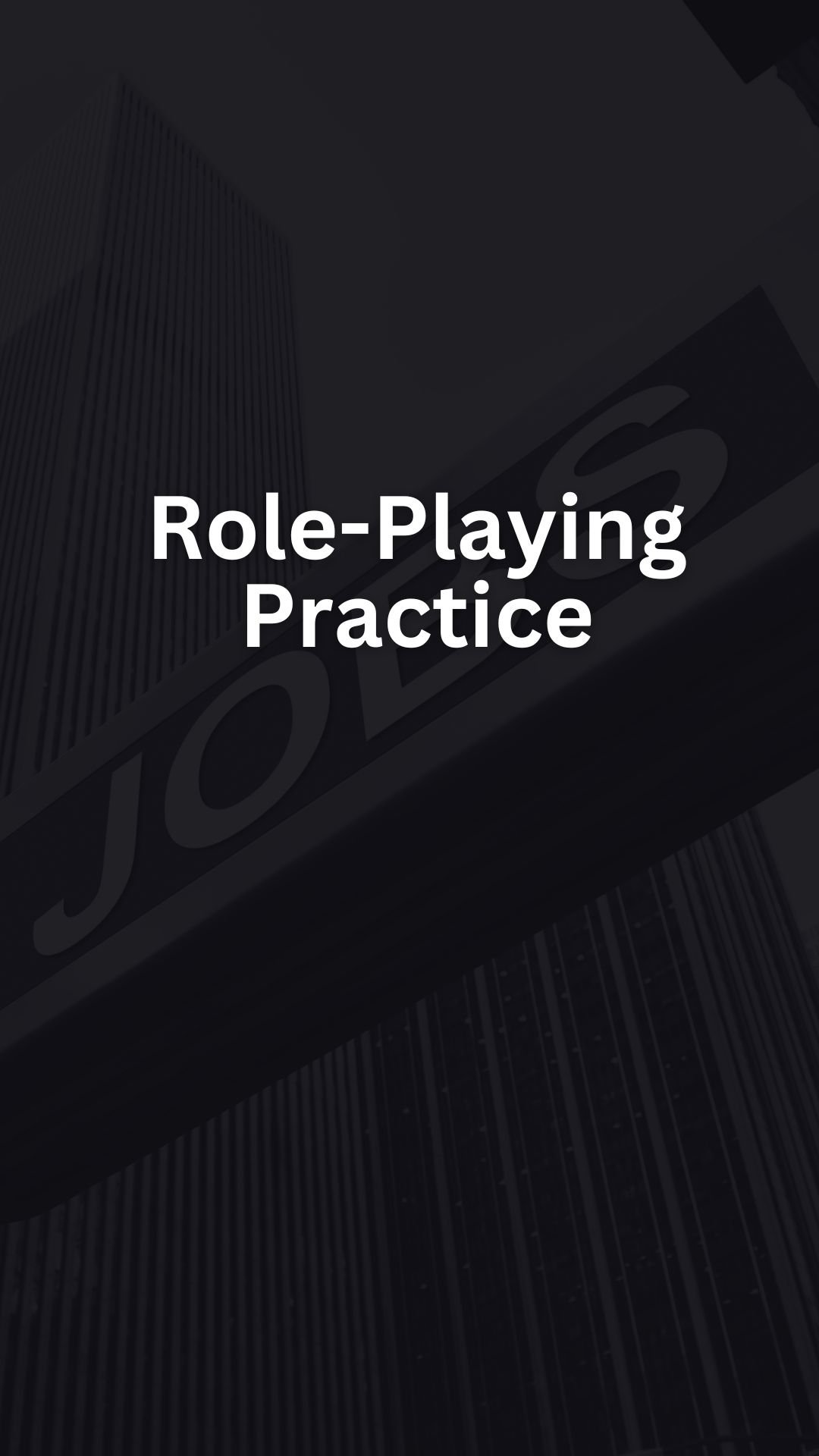
Role-Playing Practice
Role-playing is a fun and effective way to get ready for a competency-based interview. You can practice with a friend, family member, or even in front of a mirror. This helps you feel more comfortable and confident.
Start by making a list of common competency-based questions. Here are a few examples:
- Describe a time when you had to solve a problem.
- Talk about a project you led.
- Give an example of working well in a team.
Take turns being the interviewer and the interviewee. When you practice, focus on clear and brief answers. Use specific examples from your past experiences.
Tip: Remember the STAR method (Situation, Task, Action, Result) to structure your answers.
Example:
- Situation: What was the challenge?
- Task: What was your responsibility?
- Action: What did you do?
- Result: What was the outcome?
Keep practicing until you feel at ease. It’s useful to record your practice sessions. Watching yourself can help you spot areas for improvement.
Remember: The goal is to show how your skills match the job. Stay positive and focused on your experiences.
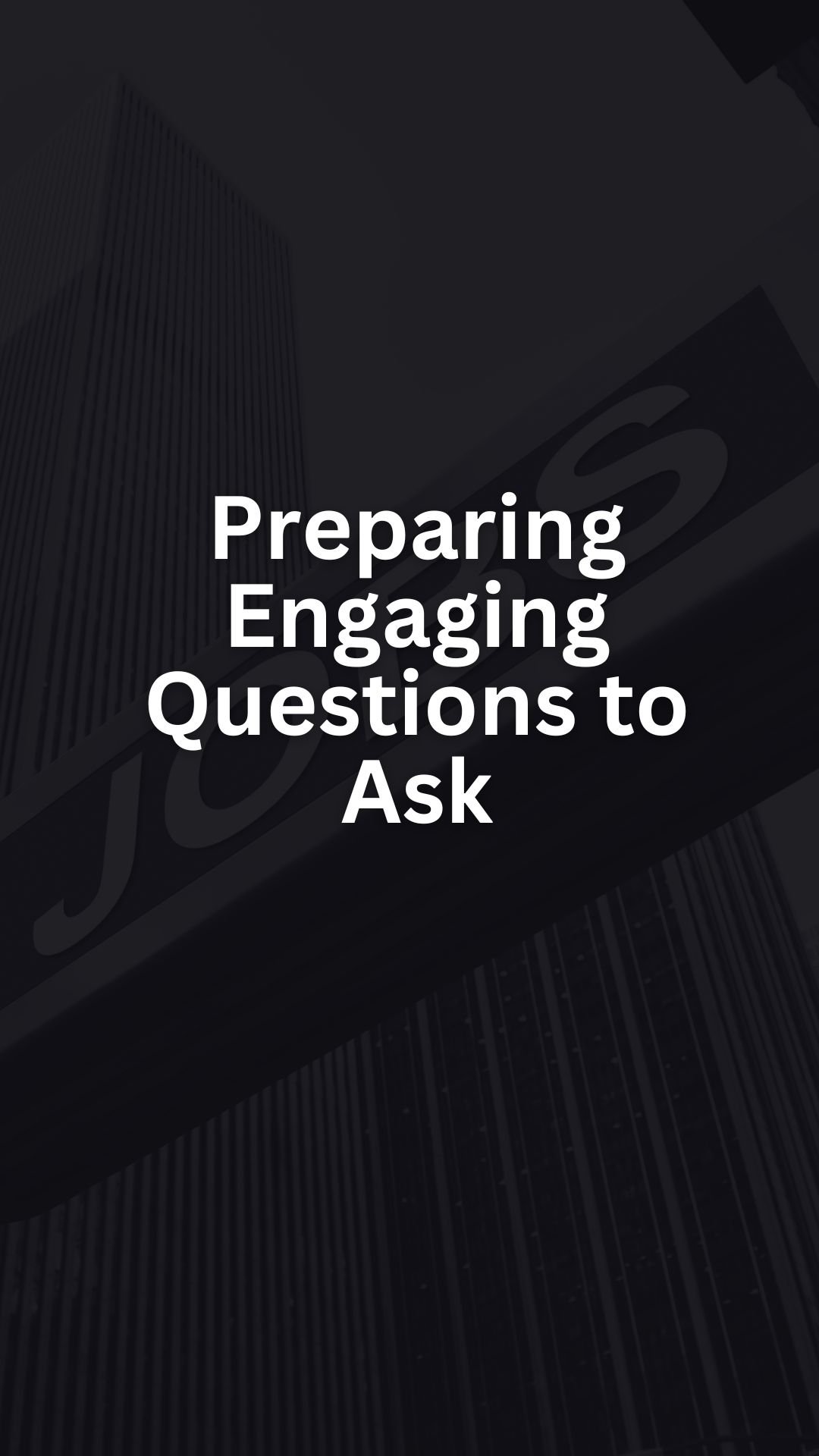
Preparing Engaging Questions to Ask
When you prepare for your competency-based interview, think of questions to ask that show your genuine interest. These questions should be specific and related to the role or company.
Example Questions:
- What does a typical day look like in this role?
- How does this team support the company’s goals?
- What are the most important skills for success in this position?
It’s also good to ask about the company culture or team dynamics.
Additional Questions:
- Can you describe the company’s culture?
- How does the team handle challenges?
- What opportunities are there for growth and development?
Prepare questions in advance, so you don’t feel rushed. Keep them concise and to the point. Aim for at least 3-5 questions to have options, but don’t feel pressured to ask them all.
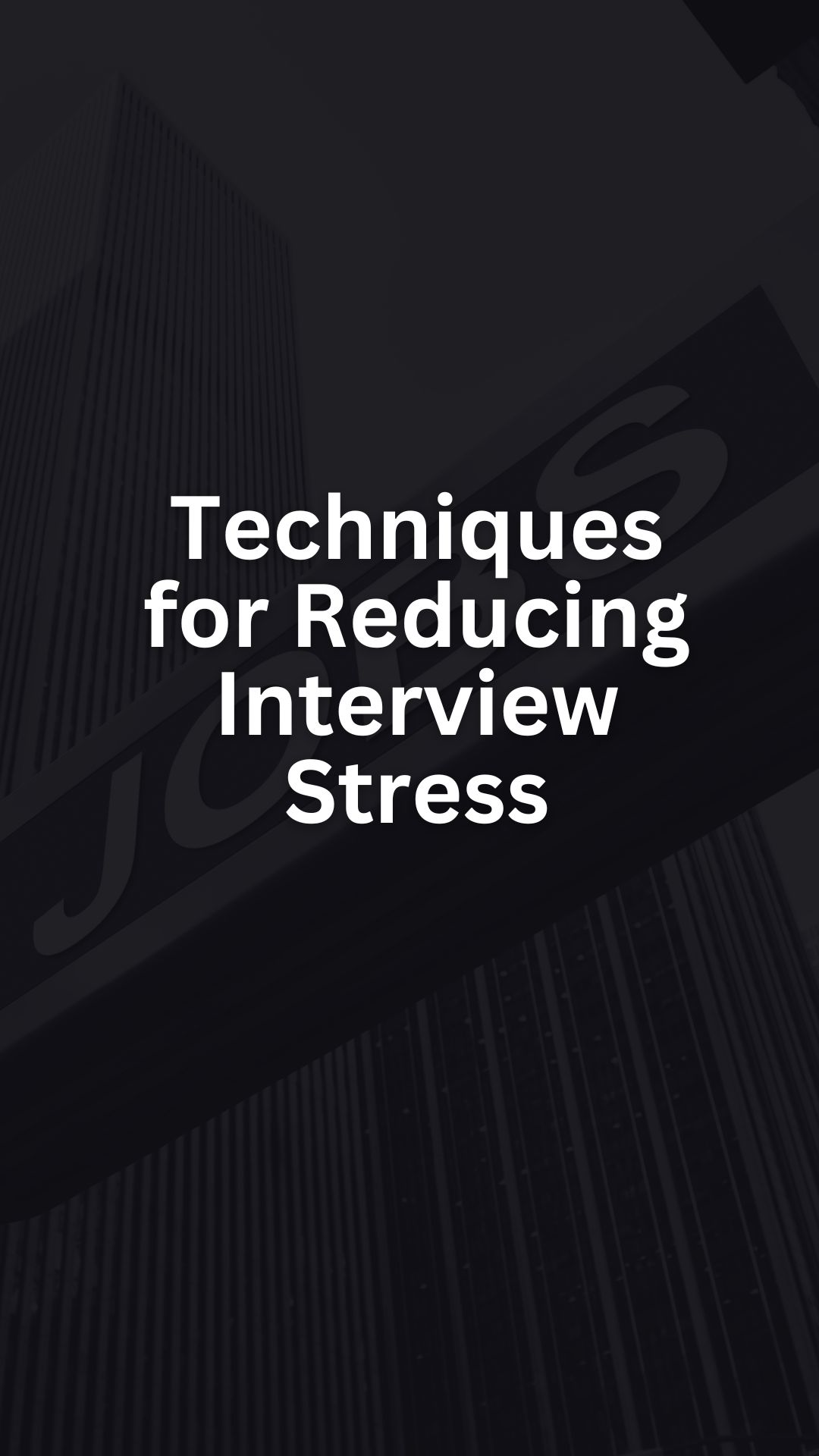
Techniques for Reducing Interview Stress
One great way to reduce stress is preparation. Practice common interview questions and answers. Make sure you understand the role and the company’s values. Research helps you feel more confident.
Mock interviews can also be very beneficial. Ask a friend or family member to interview you. This can make you feel more comfortable with the format.
Take care of your physical health. Get a good night’s sleep before the interview. Eat a healthy meal and stay hydrated. These simple steps can really make a big difference.
Plan your journey ahead of time. Know the route and how long it will take to get there. This helps you avoid last-minute panic.
Breathing exercises can help keep you calm. Practice deep breathing before and during the interview. It’s a quick way to manage nerves.
Dress in comfortable clothes. Choose an outfit that’s both professional and makes you feel good. Feeling comfortable boosts your confidence.
Make sure to arrive early, but not too early. Arriving 10-15 minutes before your interview is usually best. This gives you time to settle in.
Keep a positive mindset. Remind yourself of your strengths and skills. Think about why you’re a strong candidate for the job.
If you need to, take a moment to pause before answering interview questions. It’s okay to gather your thoughts. This shows you’re thoughtful and composed.
Finally, use a visualization technique. Picture yourself succeeding in the interview. This can help boost your confidence and reduce anxiety.
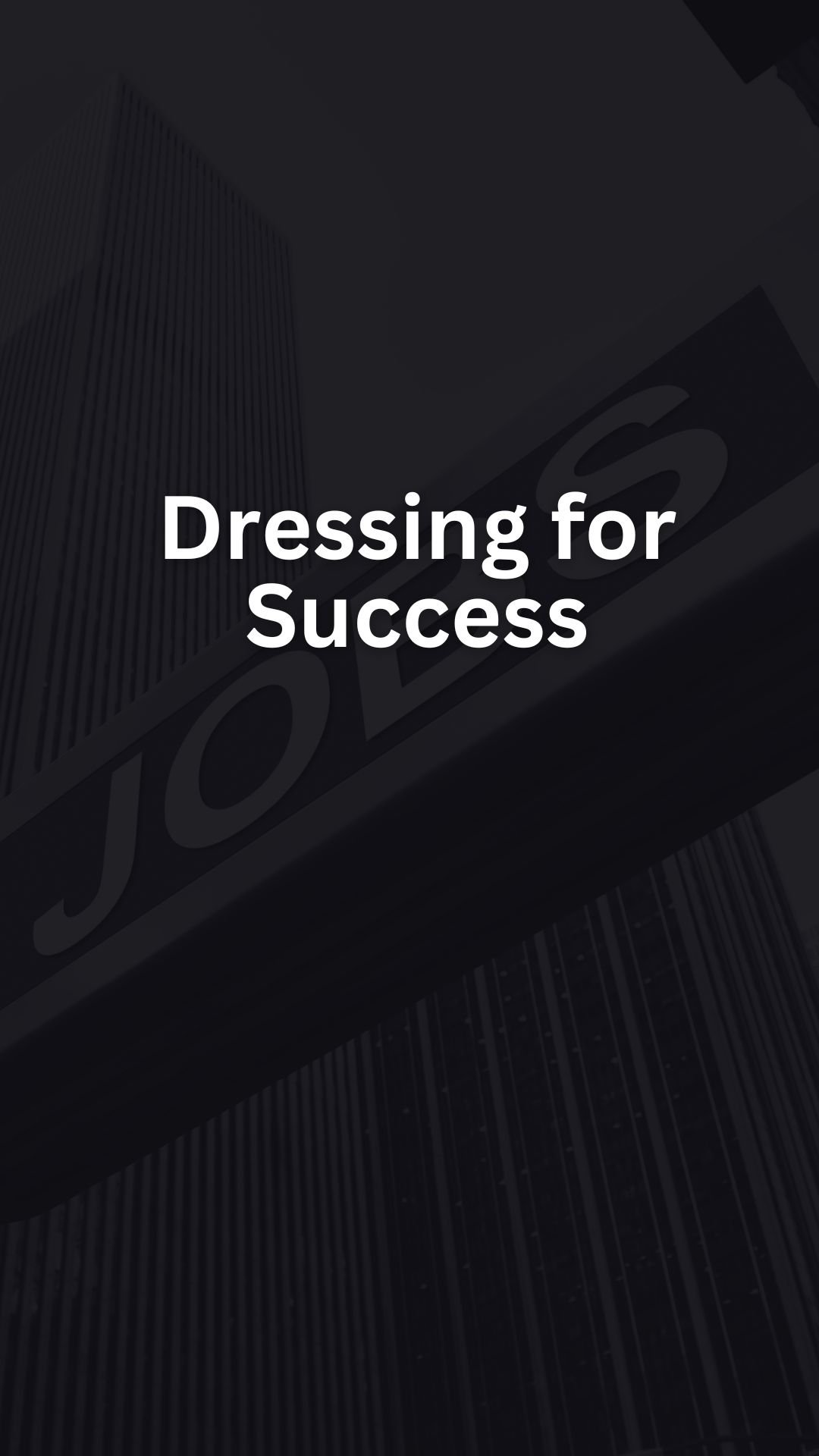
Dressing for Success
First impressions matter! Dressing the right way can set a positive tone for your interview.
For Men:
- Suit: Wear a dark-colored suit.
- Shirt: Choose a light-colored shirt, preferably white or blue.
- Tie: A simple, solid tie works best.
- Shoes: Black or brown leather shoes.
For Women:
- Suit: A tailored suit or dress.
- Blouse: Go for neutral colors.
- Shoes: Closed-toe, low-heeled shoes.
Grooming
Pay attention to grooming. Ensure your hair is neat and tidy. Avoid strong perfumes or colognes. Clean, trimmed nails show attention to detail.
Accessories
- Men: A classic watch and a simple belt.
- Women: Minimal jewelry, like small earrings and a simple necklace.
Colors and Patterns
Stick to neutral colors. Avoid loud patterns, as they can be distracting.
Fit
Make sure your clothes fit well. Avoid anything too tight or too loose.
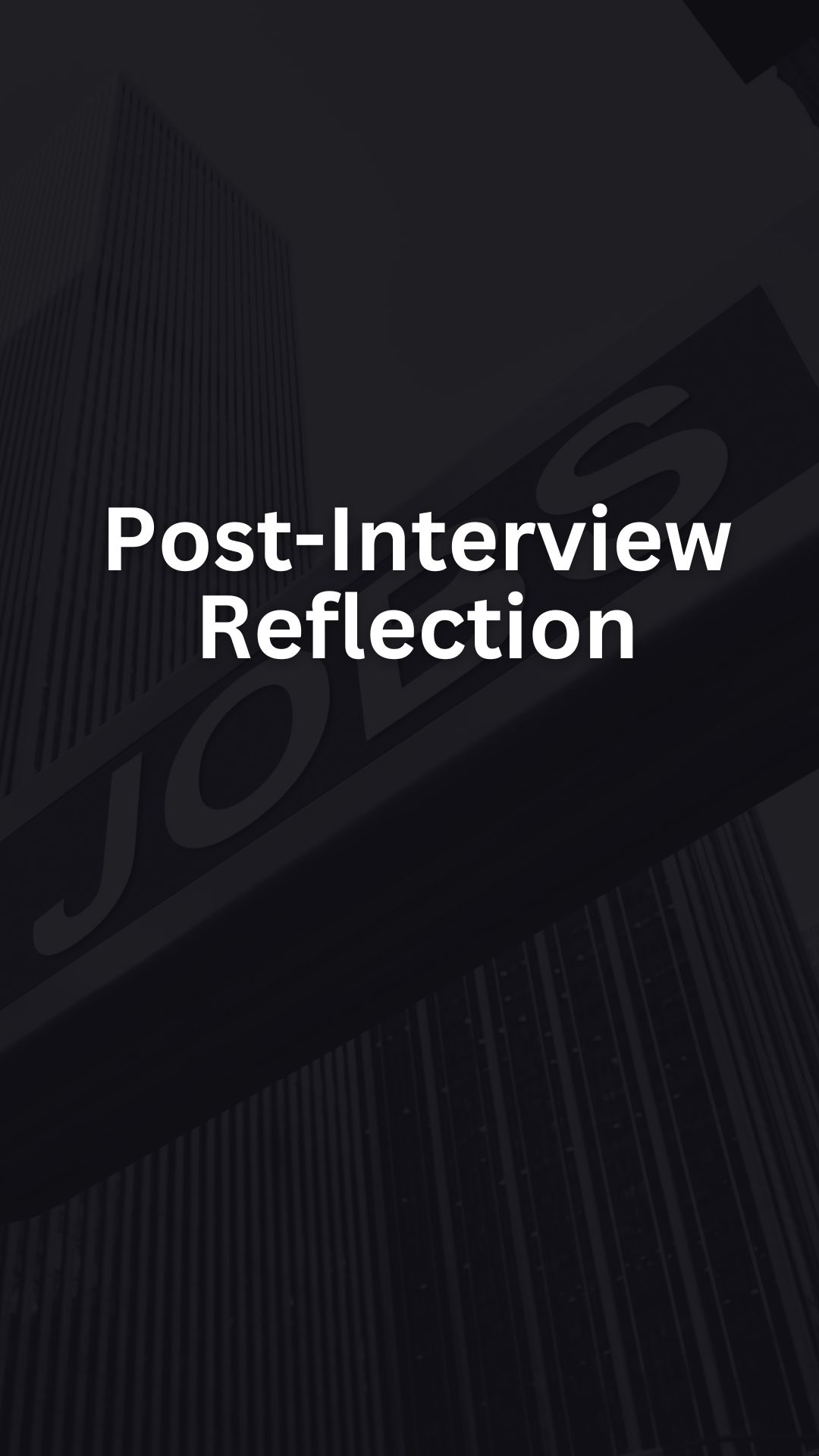
Post-Interview Reflection
After your competency-based interview, it’s important to think about how it went and what you can learn from the experience. This reflection helps you prepare better for future opportunities.
Analyzing Performance
Start by reviewing the questions asked and your responses. Were there any questions that caught you off guard? Make notes on these to help you improve.
Then, think about your body language during the interview. Did you maintain eye contact? Were you fidgeting? These details can make a big difference.
Consider how well you communicated. Did you provide clear and concise answers? If you felt you rambled, practice being more direct next time.
Ask yourself, “What went well?” and, “What could be improved?” Write down these thoughts. This will help you recognize your strengths and areas for growth.
Follow-Up Communication
It’s important to send a thank-you email to the interviewers. Express gratitude for their time and mention specific parts of the interview that you enjoyed or found insightful.
Keep the email short and professional. Mention your enthusiasm for the role and the company. This shows you’re genuinely interested.
If you haven’t heard back in a week or two, it’s okay to send a polite follow-up email. This shows that you are proactive and still interested in the position.
Include a sentence or two about how you look forward to the next steps in the hiring process.

Frequently Asked Questions
Get ready to shine in your competency-based interview by understanding the types of questions you might face, how to make a memorable impression, and the mistakes to avoid.
What can I expect to be asked during a competency-based interview?
You can expect questions that focus on how you handle specific situations. These may include teamwork, problem-solving, leadership, and communication examples from your past experiences. Every answer should highlight your skills and how you’ve successfully used them.
How can I make a lasting impression and stand out in a competency-based interview?
Be prepared with detailed examples that showcase your achievements. Demonstrate confidence, positivity, and a genuine interest in the position. Practice good eye contact and active listening.
What are some top strategies to ace a competency-based interview?
Research the company and the role to understand what skills they value. Use the STAR method to structure your responses. Practice your answers with a friend or in front of a mirror to build confidence and clarity.
Can you highlight common pitfalls to avoid in competency-based interviews?
Avoid vague answers and focusing too much on what your team did instead of your contributions. Don’t speak negatively about past experiences or employers. Skipping the preparation can also hurt your chances.
What is the STAR method, and how can it be applied in competency-based interviews?
The STAR method stands for Situation, Task, Action, and Result. It’s a way to structure your answers clearly. Describe the situation and task, explain the actions you took, and share the results. This method helps you provide complete and concise answers.
Could you provide examples of how to answer competency-based interview questions effectively?
Sure! For example, if asked about a time you faced a challenge, you might say:
“Situation: At my last job, we were behind on a project. Task: I was tasked with creating a new timeline.
Action: I assembled a team, delegated tasks, and kept everyone on track.
Result: We finished the project on time and received positive feedback from the client.”